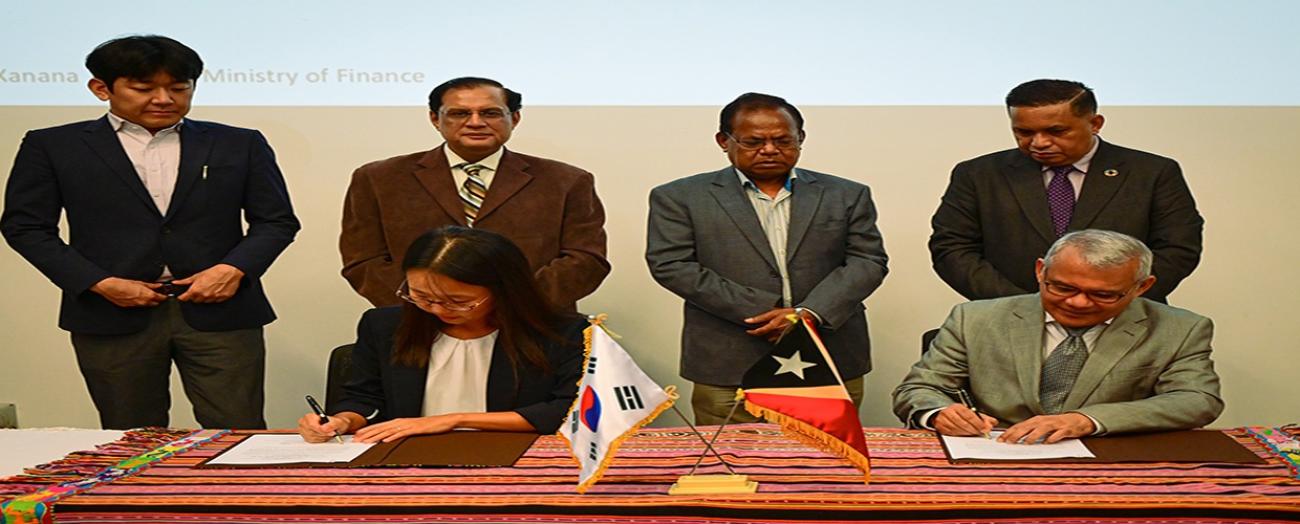Dili: The Government of Timor-Leste and the Korea International Cooperation Agency (KOICA) have signed an important agreement for a grant dedicated to strengthening the country's preparedness and response against infectious diseases. The World Health Organization (WHO) Timor-Leste will be a key partner in providing the required technical support and implementing the programs and initiatives under this project.
The grant agreement signing ceremony was held on 16 March in the presence of the Minister of Finance, HE Dr. Rui A. Gomes, Vice Minister of Finance, HE Antonio Freitas, Vice Minister of Health, HE Bonifácio Maucoli dos Reis, Deputy Chief of Mission of the Republic of Korea, Jinum Hong, KOICA Country Director, Eunju Cha, and WHO Representative, Dr. Arvind Mathur, among other dignitaries.
Timor-Leste, a small island country in Southeast Asia, remains vulnerable to infectious disease outbreaks due to its limited health infrastructure, sub-optimal capacity of health systems, and high poverty rates. The COVID-19 pandemic underlined the need to strengthen Timor-Leste's preparedness and response to fight existing infectious diseases as well as emerging diseases.
"The strength of any nation lies in the health and well-being of its people," said Dr. Gomes at the signing ceremony. "That is why we welcome this generous support from the Korean people in conjunction with the WHO," he added.
Dr. Gomes also acknowledged KOICA’s previous contribution towards the 'Say No To 5S' project that aims at improving the health and nutrition of Timorese children by tackling Starvation, Soil-transmitted Helminthiasis, Skin diseases, Smoking, and Sugary/Alcoholic Drinks.
The Vice Minister of Health, Mr. Reis, said that the support from KOICA will go a long way in increasing the coverage of health programs and reducing the mortality rate related to infectious diseases.
WHO Representative Dr. Arvind Mathur echoed his thoughts. "Infectious diseases pose a significant threat to global health security. They can spread rapidly, causing widespread illness, death, and economic disruption. The COVID-19 pandemic has shown us how important it is to be prepared for such events," he said, assuring that the WHO is committed to executing the project successfully.
While KOICA will provide the financial grant of over $5.7 million, another $420,000 will be contributed by the WHO. The project will run up to 2026 and will support the development of sustainable systems for timely detection and control of outbreaks, strengthen defenses at the points of entry at the borders, develop epidemiology training programs and electronic, web-based reporting systems, strengthen laboratory capacities among other interventions.



